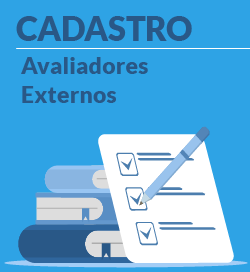INTERGENERATIONAL EDUCATION AS A STRATEGY FOR HEALTH PROMOTION AND SCHOOL COEXISTENCE: METHODOLOGICAL PROPOSAL OF THE YOUNG DOCTOR PROJECT
Resumen
Background: The Young Doctor Project arises from the need to address the growing distance between generations, driven by cultural, technological, and demographic transformations. In light of this scenario, it is important to create spaces that foster and encourage encounters between different age groups. The school, as a formative environment, proves to be a strategic venue for promoting this rapprochement. Thus, the project aims to meet a contemporary demand for greater inclusion, dialogue, and collective construction across generations. Purpose: The primary objective of this article is to present a pedagogical intervention proposal—currently in its structuring phase—focused on promoting dialogue between youth and older adults through intergenerational education in the school context. The project seeks to encourage significant transformations in school culture by building a collaborative environment grounded in mutual respect, empathy, and the appreciation of active aging. Methods: The methodological proposal foresees the use of both qualitative and quantitative evaluation instruments, with the goal of measuring the impacts of the intervention. Qualitative evaluation tools include open and semi-structured interviews, participant observation and field diaries, discussion circles, experience logs, and self-assessments. These methods were chosen for their ability to capture intergenerational relationships and the symbolic impacts of the project. The adoption of open and semi-structured interview formats reflects a balance between structure and flexibility. Regarding quantitative evaluation tools, the project will employ structured self-assessment and perception questionnaires, documentary analysis of pedagogical projects, and monitoring of numerical indicators. In addition to the aforementioned instruments, an ethnographic study is planned to gain an in-depth understanding of intergenerational coexistence dynamics, given that ethnography as a qualitative approach allows the researcher to grasp the meanings participants attribute to their lived experiences. Results: With the implementation of the project, it is anticipated that results will demonstrate the effectiveness of the adopted methodology. From a formative perspective, the development of competencies related to holistic health, intergenerational mediation, and the use of innovative pedagogical practices is expected. In the relational dimension, the strengthening of intergenerational bonds is
projected, with positive effects on active listening, mutual respect, and the appreciation of diversity. From a symbolic and cultural standpoint, the project aims to redefine generational stereotypes and promote a more welcoming, dialogical culture. Furthermore, the data obtained are expected to support the preparation of a final evaluative report and the creation of original pedagogical materials—such as the Theoretical Workbook, the Activity Workbook, and the Good Practices Manual—to enable qualified replication of the proposal in other school units. Conclusion/Implications: By promoting encounters between generations, this experience reaffirms the role of the school as a territory for dialogue and collective construction. In this sense, the contributions of the Young Doctor Project transcend the boundaries of the school, reaching the spheres of education, health, and public policy formulation. The proposal underscores the importance of lifelong learning for all ages and positions youth protagonism as a driving force for social transformation.
Descargas
Publicado
Número
Sección
Licencia
Derechos de autor 2025 Revista Diálogos em Gerontologia

Esta obra está bajo una licencia internacional Creative Commons Atribución-NoComercial 4.0.
A Revista oferece acesso livre e imediato ao seu conteúdo, em consonância com o princípio de que tornar o conhecimento científico amplamente disponível contribui para a democratização do saber. Os(as) autores(as), ao submeterem seus trabalhos, declaram-se detentores(as) dos direitos autorais e autorizam seu uso livre, desde que sem fins comerciais, com obrigatoriedade de atribuição de crédito apropriado à autoria original. Os conteúdos podem ser lidos, baixados, copiados, distribuídos e impressos, conforme os termos da licença Creative Commons Atribuição-NãoComercial 4.0 Internacional (CC BY-NC 4.0).





